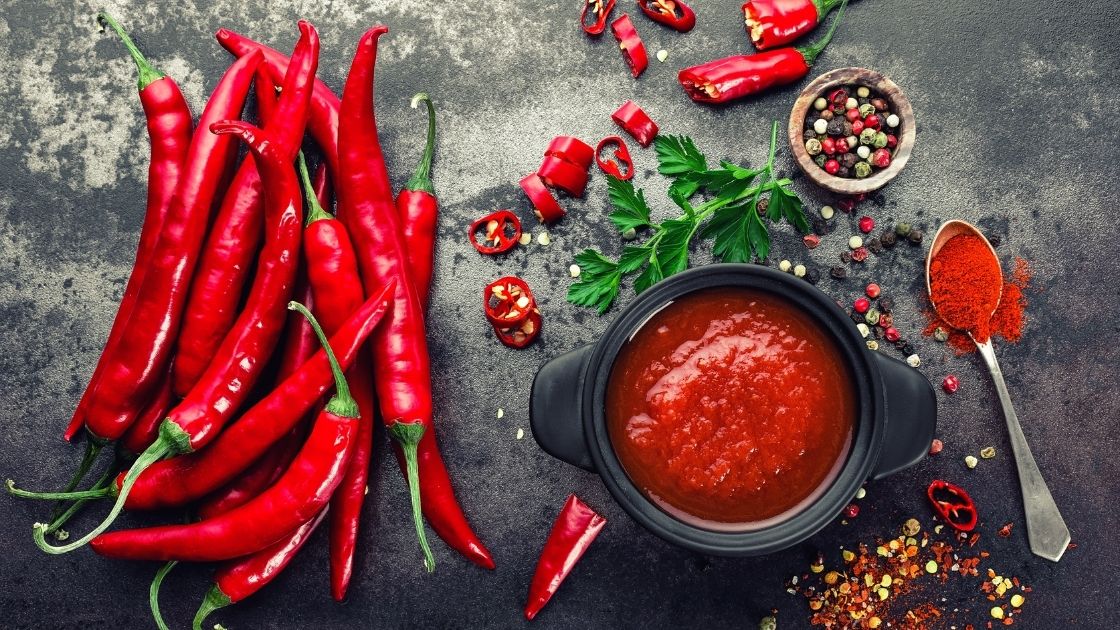Chile heat index?
Scoville units, what?
Capsaicin?
My mouth and hands are on fire, ouch!
Here I am making some delicious homemade salsa for the Monday Night Football game, and my mouth and hands are killing me. How can you stop the burning and get this salsa recipe ready to go without hurting your guests?
Now, don’t take Capt’n Salsa the wrong way, I love the heat of a good chile, but there is a big difference between hot and hurt. But oh boy, what a flavor. You know you’re a chile head when you use cheese and chopped habanero to stuff your jalapeno peppers.
Perhaps I can answer a few of your questions about how hot those chiles are and what can you do about it if you get just a little carried away with the heat.
What’s that? Your mouth and hands are burning? Okay, let’s start with the hands…
First, wet your hands with cold water, and then rub them briskly together with a teaspoon or so of salt as if you are washing your hands. I prefer kosher salt due to its coarse texture, but grabbing the salt shaker will also work. Now, rewash your hands with soap and warm water. This also works well when working with garlic and onions.
You did wear your rubber gloves when you started working with the chiles, right?
Come on, Capt’n, my mouth is really burning too!
“Your mouth is on fire?”
Whatever you do, do not reach for the water; it will only spread the capsaicin oil around inside your mouth, spreading the oil of the chile, and you will swear it just got hotter.
So don’t reach for the water, okay?
Here are a few remedies that have proven to work.
Milk or dairy products are cooling; grab a glass of milk or a scoop of your favorite ice cream. Did you ever wonder why you almost always see a dollop of sour cream or a helping of “Crema Mexicana Sauce” on your enchiladas and nachos?
Yes, even a “Cerveza” can be cooling too; the alcohol will help dissolve the irritating oils and “deaden” the pain. Now, wait a minute, don’t get carried away; you didn’t hear me say anything about Tequila Shots.
Also, a lemon or lime squeeze will help balance the palate and distract it from the heat. Perhaps my favorite simply continues to eat the hot salsa that got you to the fire dance in the first place.
Yep, it’s true.
Eating more hot salsa with your favorite tortilla and chips, “the bread” will naturally soak up and help dilute the capsaicin level and reduce “the pain.”
Hey, Capt’n, what’s a Scoville Unit?
Walter Scoville, a pharmacist back in 1912, developed the Scoville heat index to measure peppers’ impact on the tongue. He came up with a way to determine how much sugar water it took to cancel the burn you felt on your tongue. For example, if a hot chile, like the jalapeno, is rated at 5000 Scoville units, that means the capsaicin oil needs 5000 times its volume in sugar water to neutralize it.
Fine and good, but what does that really mean to me? If a jalapeno is rated from 3500 to 5000 on the Scoville scale and a habanero is in the range of 350,000, how hot is it?
Capt’n Salsa’s Fool Proof Chile Heat Index, coming to the rescue.
Now just so you know, you might think the Capt’n named this very appropriately, “foolproof,” but believe me, it really works.
Let’s get right to it. Be sure and read the paragraph about “My mouth is burning” and plan accordingly. Remember, an effective quencher for the burning palate is grab a glass of milk or your favorite bowl of ice cream and have it sitting at arm’s reach. You should also have a bowl of chips, crackers, or a slice of bread handy.
Now, time to do some useful old fashion testing. Ready?
Do not try this with a habanero!
You will need one jalapeno for this test. Begin by slicing just the tip of the pepper off.
Then ever so gently, I do mean very lightly, “Hey, it’s your tongue,” so be very careful, touch the tip of your tongue to the cut edge of the jalapeno. Wow!
Fool-Proof! See, I told you.
Again I’m telling you not to try this with a habanero; even the mildest habanero will knock my socks off.
Here are a few of Capt’n Salsa’s tips for handling hot chiles.
You can build up your heat tolerance for hot chiles by starting with the mild ones then increasing to the hotter varieties in your salsa recipes. Overtime, the more often you eat them, the more tolerant you will become.
When working with fresh or dried hot chilies, always wear plastic or rubber gloves when working with them.
Chop or cut green chiles on an impervious surface like china, glass, or metal. Do not use your favorite wood cutting board. The wood will soak up the chile oils, and it will pass it along to the next food you chop…Wow, these are the hottest strawberries I have ever had!
Do not cut chiles under running water.
When you process or sauté hot chilies, they release plenty of burning vapors into the air. Turning your head or wearing a household dust mask will help.
Be sure to experiment with your homemade salsa recipe ingredients. If you are not sure of the heat level the number of chiles called for will produce, then, by all means, start with just a minimal amount and add to it a little at a time until you achieve your desired results.
Try different varieties of chiles for unique taste sensations.
Share your homemade salsa creations with your family and friends. You will be happy you did, and so will they.
Summary:
Perhaps I can answer a few of your questions about how hot those chiles are and what can you do about it if you get just a little carried away with the heat.
Keywords:
the chile heat index, homemade salsa recipe, Scoville unit


